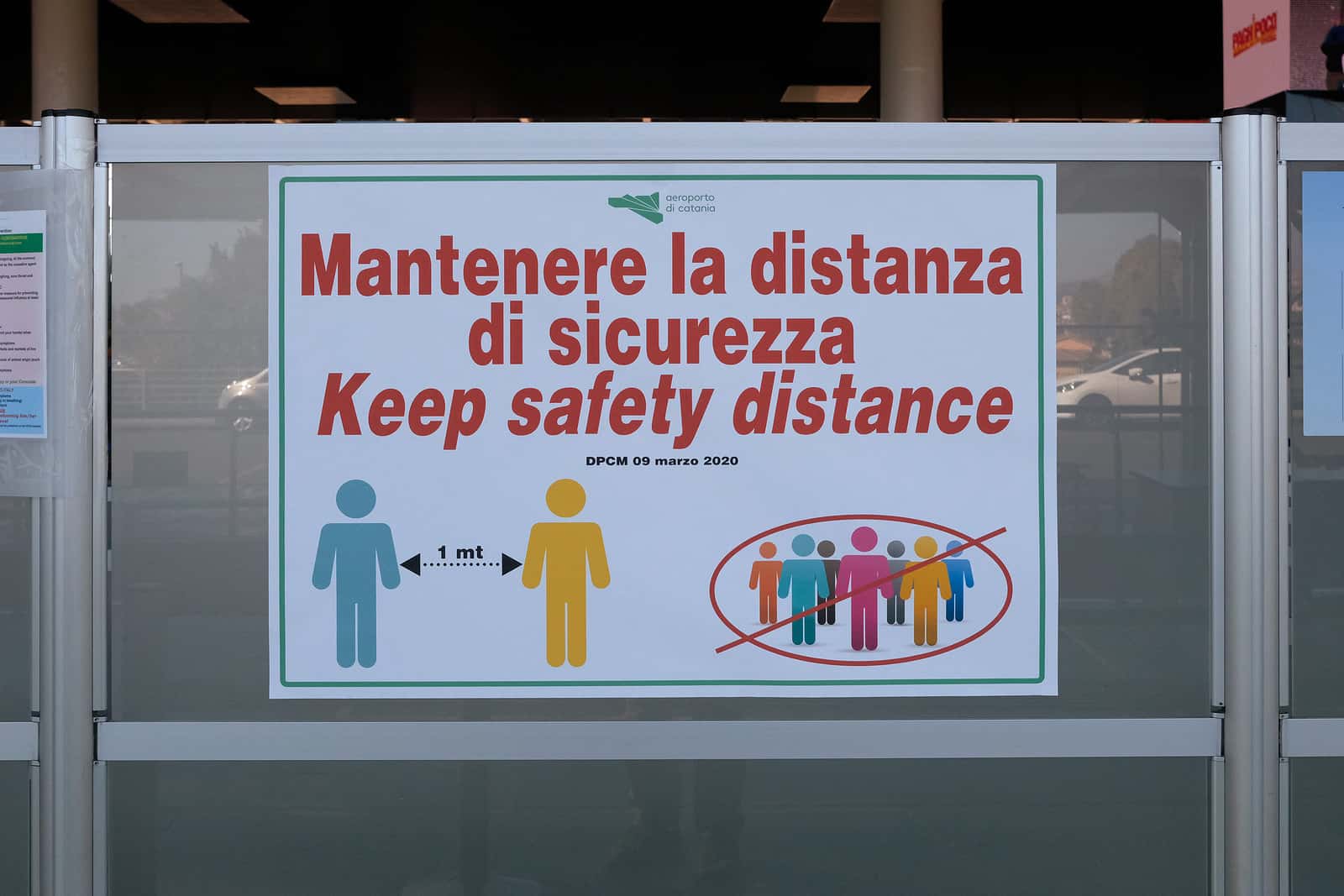
Around the world, people who have clearly recovered from COVID-19 are being retested. Some of them seem to be testing positive for the virus again. Does that mean they have become re-infected? Perhaps even more important is the question: can they transmit the virus if they test positive for SARS-CoV-2 a second time? If there is COVID-19 reinfection, does that mean a vaccine won’t work?
The Italian Experience:
Italy still lags behind in its vaccination rate. However, a new study shows that people who have recovered from COVID-19 are largely protected from reinfection for at least a year (JAMA Internal Medicine, May 28, 2021). The researchers collected data from the region of Lombardy, which was hit especially hard early in the pandemic.
They conclude that
“natural immunity to SARS-CoV-2 appears to confer a protective effect for at least a year, which is similar to the protection reported in vaccine studies.”
Answering COVID-19 Reinfection Questions:
Some reassuring information about reinfection has been available for quite a while. A year ago, the Korean Centers for Disease Control (KCDC) reported that it was following 470 patients who survived an attack of SARS-CoV-2 (May 19, 2020). These people overcame their illness and seemingly recovered well. But then these individuals tested positive again for the coronavirus. Researchers worried that COVID-19 reinfection might represent an ominous development in the evolution of the pandemic.
These observations, both from the Korean CDC and from sailors on the USS Theodore Roosevelt, would be alarming if they mean people can catch the disease repeatedly. The US CDC commented that the positive tests from the recovered sailors might simply indicate that it takes time to clear away all the viral debris from the body.
PCR Test: Nonspecific for Viral Particles
The test that is used to determine if someone is infected with SARS-2 is called PCR (polymerase chain reaction). It apparently can’t tell the difference between viable coronavirus and “dead” or inactive viral particles.
This possibility seems even more likely based on the report from the Korean CDC. The positive re-tests occurred, on average, 45 days after onset of symptoms. The agency initially treated all such cases the same way it treated initial positive tests, with isolation and contact tracing.
Only three of the 790 contacts who were identified and followed up actually developed the disease. Those three individuals had contact with other infected people through their church or household.
Investigators attempted to culture the virus from 108 of the people who had re-tested positive. None of those attempts were successful. As a result of this research, South Korea is no longer requiring isolation of patients who re-test positive.
Health officials there doubt that people who recover from the coronavirus will be likely to transmit the infection to others. Instead of labeling such people “relapsed” if they test positive for COVID-19 reinfection, they should be described as “redetected.”
More Good News About Infection Protection in Monkeys!
Around the same time, health professionals and patients wanted to know: If people get sick with SARS-CoV-2 and recover, will they be protected from COVID-19 reinfection? A study published in Science (May 20, 2020) suggested that they would be.
Investigators infected rhesus macaque monkeys with SARS-CoV-2. The macaques:
“…had high viral loads in the upper and lower respiratory tract, humoral and cellular immune responses, and pathologic evidence of viral pneumonia.”
Once the monkeys were able to overcome COVID-19 they were “rechallenged” with SARS-CoV-2 viruses. Their
“…immune response following rechallenge suggested protection was mediated by immunologic control. These data show that SARS-CoV-2 infection induced protective immunity against re-exposure in nonhuman primates.”
One of the key investigators involved in this research told the Boston Globe (May 20, 2020) that generalizing from monkey research to humans can be risky, but:
“…I can say these data increase our optimism that natural immunity and vaccine-induced immunity can be achieved in humans.”
COVID-19 Reinfection and Antibody Tests?
Many health professionals and patients want antibody tests to determine a) whether they have been exposed to the SARS-CoV-2 virus, b) if they will no longer experience COVID-19 reinfection and c) whether they now have immunity and cannot transmit the infection to family, friends, patients or anyone else for that matter.
At that time, we didn’t have a good answer. For one thing, many of the commercial antibody tests were disappointing. On May 21, 2020 the Food and Drug Administration announced that more than two dozen tests had problems with their applications.
The FDA commissioner stated:
“Our action today is an important step the agency has taken to ensure that Americans have access to trustworthy tests.”
It is a shame that that so many manufacturers apparently sold antibody tests that were untrustworthy.
Just to clarify, these antibody tests are not the nasal swab tests that detect active virus. The antibody tests are performed on blood that is obtained with a finger stick. The blood is tested for evidence that someone has been infected and developed an immune reaction (antibodies).
According to the FDA on May 19, 2021, antibody tests should not be used to determine if someone has mounted a good reaction after vaccination. The current tests do not show the level of protection afforded by an immune response, whether to past infection or to vaccination.
The Bottom Line: Once someone is infected, he (or she) should be protected once recovery is complete. And once there is a measurable immune reaction, that person should not become a vector for further transmission of the virus. Vaccination also appears to cut the likelihood of virus transmission as well as of severe illness.
Citations
- Vitale J et al, "Assessment of SARS-CoV-2 reinfection 1 year after primary infection in a population in Lombardy, Italy." JAMA Internal Medicine, May 28, 2021. doi:10.1001/jamainternmed.2021.2959

